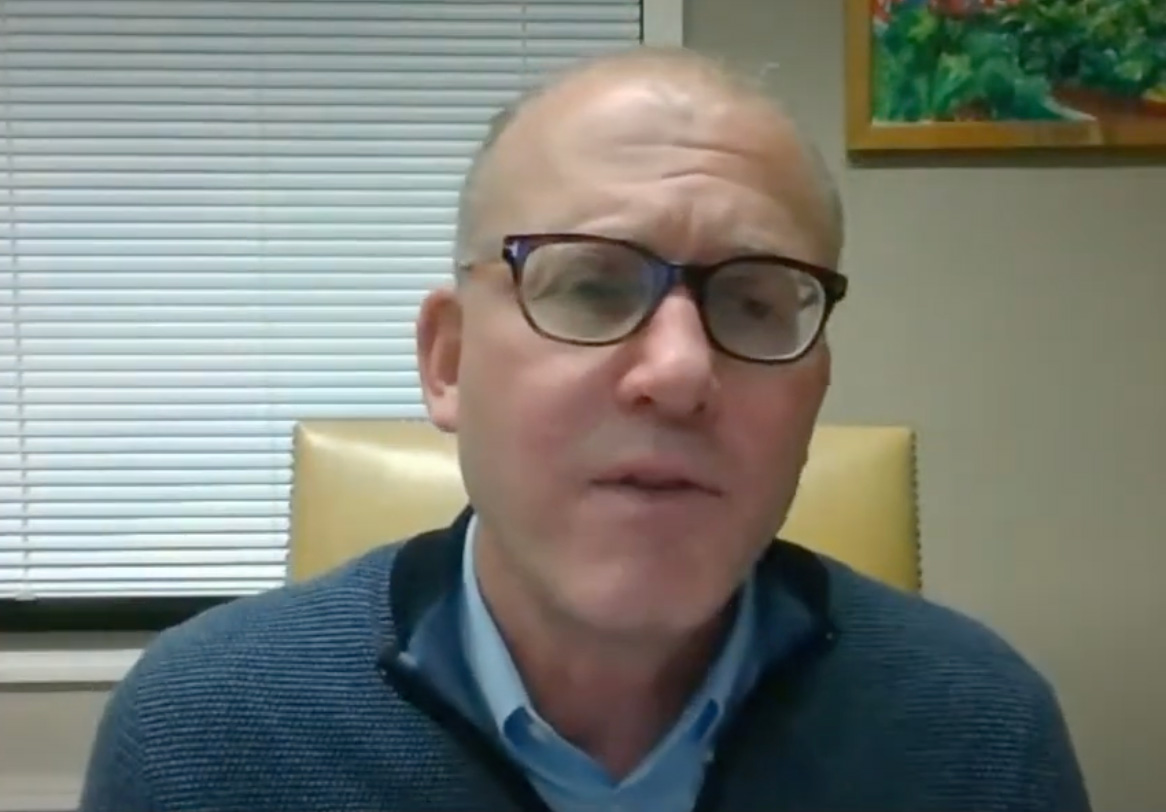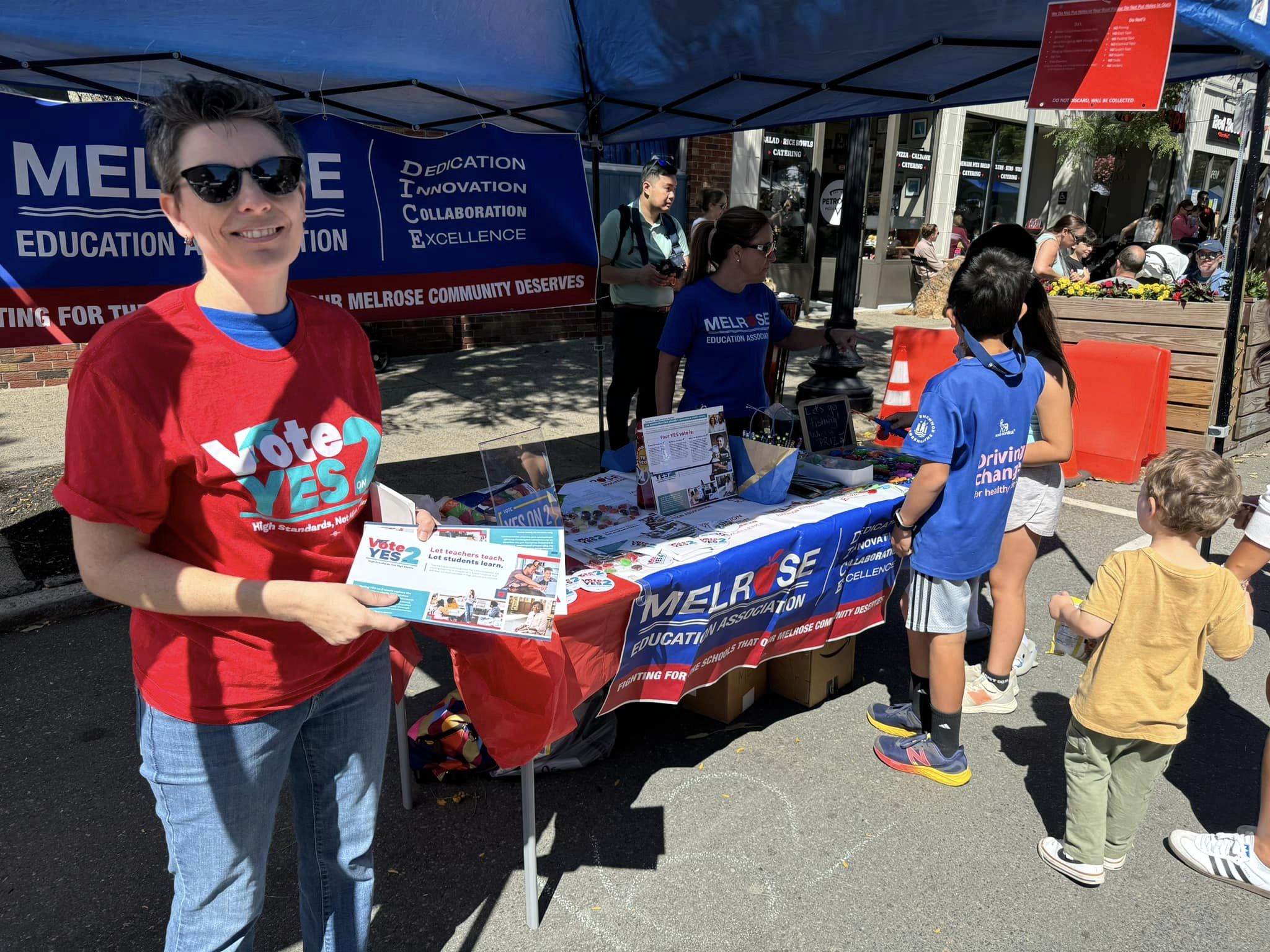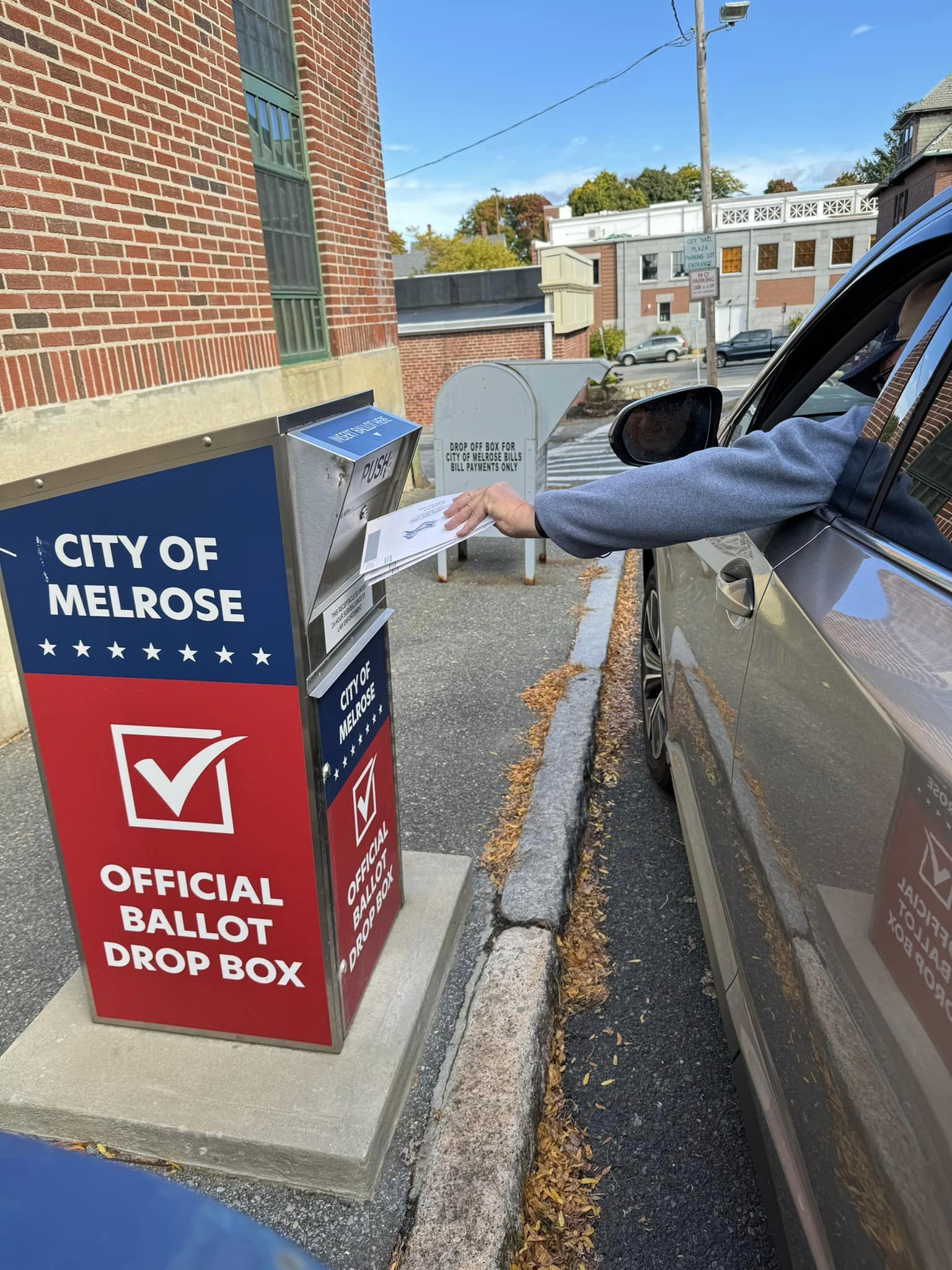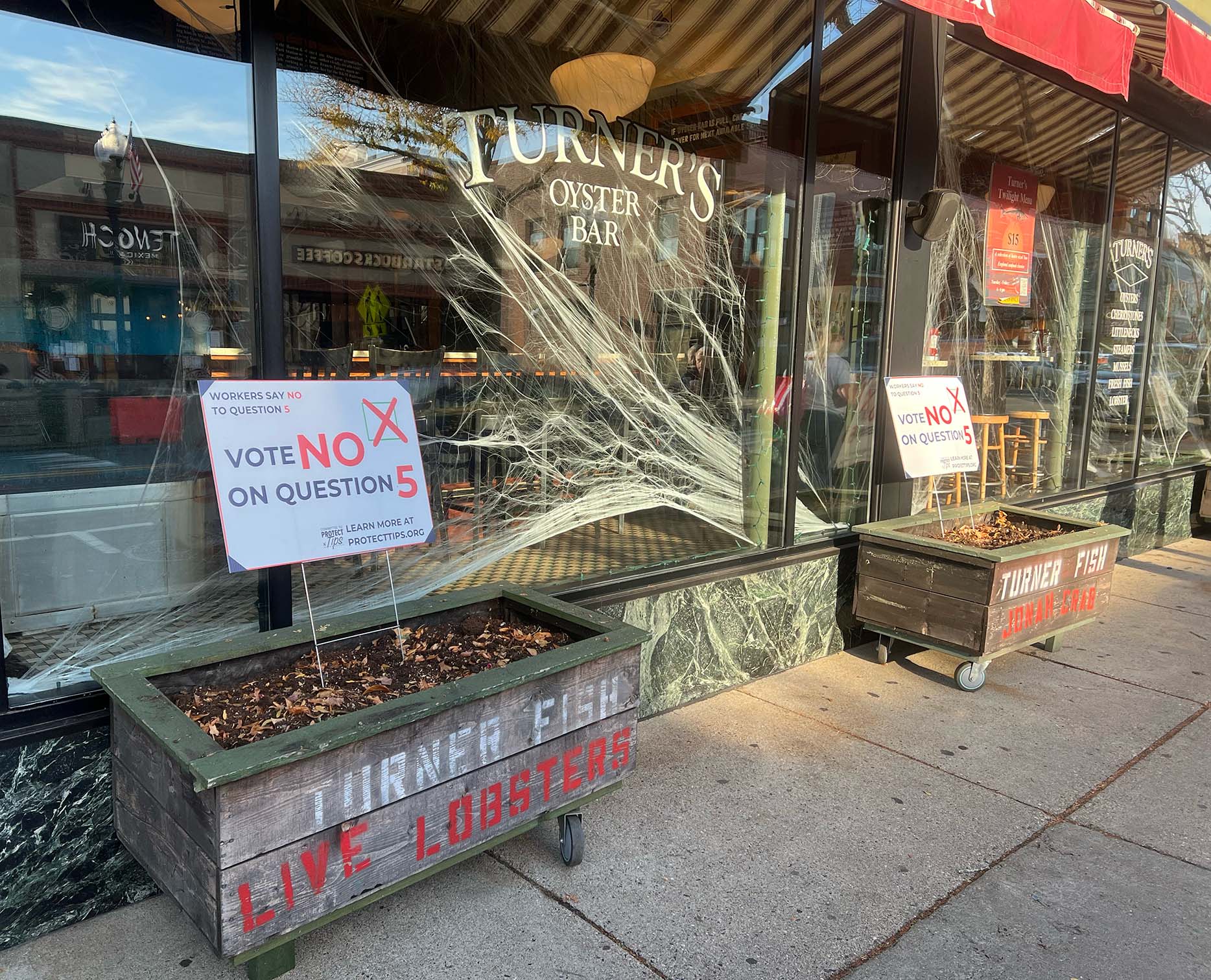Statewide Ballot Questions Find Supporters and Opponents in Melrose

Massachusetts may not be a swing state in next week’s general election, but Bay State voters will decide on a slate of five ballot questions that have generated a fair amount of discussion over the last few months. In Melrose, several organizations, elected officials, and private citizens have made statements about the ballot questions on one side or the other.
The Melrose Democratic and Republican City Committees each voted to make endorsements on all 5 ballot questions.

State Senator Jason Lewis on Tuesday's livestream
State Senator Jason Lewis, who is a member of the Special Joint Committee on Initiative Petitions and reviewed each ballot question as part of this committee, has made public statements on two of the questions and hosted a virtual town hall on Tuesday focused on the ballot questions.
To learn more about these ballot questions, look at the Information for Voters packet, assembled by the Secretary of State and mailed to all voters, or see the Tufts Center for State Policy Analysis Voters' Guide, or search the Boston Globe for some of the extensive coverage they've done on each question.
Question 1: Should the State Auditor have the authority to audit the State Legislature?
The Melrose Democratic and Republican City Committees both unanimously voted to endorse Yes on Question 1.
The Democratic City Committee said, “We understand that affirming this ballot measure will not be a panacea for the culture of secrecy in our legislature, but we nonetheless hope that a strong positive outcome will open new conversations surrounding transparency on Beacon Hill.”
Senator Lewis, on Tuesday’s livestream, shared his view that allowing the State Auditor to audit the legislature “would be a violation of the separation of powers,” and suggested that, should the question pass, it would still be subject to challenge in court. He asserted, “I certainly do recognize that there are valid criticisms and concerns about the transparency of the state legislature - I do think there’s a lot we do that’s very transparent and available to the public, but there are other kinds of processes that are less visible to the public - and I certainly support efforts to improve the transparency and accountability of the state legislature.”
Asked if there is any formal system of performance review in place for the legislature, Senator Lewis argued, “The way I would see this, our performance review is: what did you get accomplished in a legislative session? What are the challenges facing the Commonwealth of Massachusetts, and what did the legislature actually get done to address those challenges? Every two years, it’s up to the voters to decide if they’re happy with the way that their legislators are representing them, so it’s up to the voters to decide, and I think that’s the right way for us to be held accountable.”
Question 2: Should the MCAS test be eliminated as a high school graduation requirement?
The Melrose Republican City Committee voted to endorse No on Question 2. Chair Gayle-Jean Angelo noted that there was not a great deal of discussion over the committee’s endorsements, as the group was overall in agreement.
The Melrose Democratic City Committee voted to endorse Yes on Question 2. They shared their belief that MCAS “remains a helpful diagnostic tool for assessing academic progress, but that it does more harm than good for many students who would benefit from alternative graduation standards that do not take the form of a single high-stakes test. We are confident that teachers, administrators, and state lawmakers will be able to establish new graduation requirements that will keep Massachusetts a national leader in primary and secondary education.”

The Melrose Education Association tabling for Yes on 2 at the Victorian Fair
Photo Credit: Nancy Clover
The Melrose Education Association has been supporting the Massachusetts Teachers Association (MTA), of which it is a member, in its efforts to promote Yes on Question 2. MTA President Max Page said in regard to Yes on 2: “This is the tragedy of the high-stakes use of the MCAS to determine who gets a diploma: It adds yet another barrier to opportunity for our young people, so often students of color, from working-class families, who have disabilities or are acquiring English as a language.” He noted that passing Question 2 would “bend the curve away from the failed model of high-stakes testing and redirect public education to authentic learning in classrooms.”
Senator Lewis published a statement in support of Yes on 2. In his livestream, he noted that he had been involved in working with union leaders and legislators to reach a compromise on MCAS in the spring. “We made a lot of progress in those conversations,” he said, “but we weren’t able to make it all the way there.”
“I really believe everyone has the best of intentions for the wellbeing of our students in our schools, especially students from disadvantaged backgrounds,” he went on, “and I do think that we get important data from standardized tests like MCAS, but I also think there are significant drawbacks, and that standardized tests are not capable of capturing a holistic assessment of how students are doing, so I will be supporting Question 2.”
“At the same time,” Senator Lewis continued, “I also believe that we need to put an alternative, standardized, statewide rigorous system in place for high school graduation, because I do not support just leaving this up to every one of our high schools to make that determination on their own.” Instead, Senator Lewis noted, if Question 2 passes, he intends to file legislation early in the new legislative session “to put in place an alternative statewide, consistent, high-quality graduation standard that will be non-test-based” and instead require students to take a certain set of course requirements in order to graduate high school which, Senator Lewis noted, would make Massachusetts more aligned with many other states.
Question 3: Should Massachusetts rideshare drivers have the option to join a union?

Photo Credit: Nancy Clover
The Melrose Republican City Committee voted to endorse No on Question 3.
The Melrose Democratic City Committee voted to endorse Yes on Question 3, noting that “the technology that has made rideshare apps possible has also created employment conditions which have blurred once-clear distinctions” between part-time contractors and full-time employees, “and the legislature must act now to ensure that present and future workers in this burgeoning new sector have the same rights to collective bargaining assumed by those in traditional workplace settings in the past.”
Senator Lewis published a statement in support of Yes on 3. In his livestream, Senator Lewis made note of “the very concerning trend” of companies moving from employing full-time workers to gig workers. He argued that “drivers currently have no voice at all, and they are at the mercy of the companies,” since “as gig economy workers there is no path for them to form a union, as there is for other workers.”
He noted that Question 3 is “very similar to a bill I’ve been championing in the legislature for a number of years, and it’s an issue I care a lot about.” He also called the SEIU, which is the main union behind the ballot initiative, “a phenomenal union, they just do a fantastic job representing service workers” and stated his belief that, if the SEIU were selected to represent rideshare drivers, “the drivers will be very well represented.”
Question 4: Should certain natural psychedelic substances be legal to use under licensed supervision and to possess in limited quantities in the home?
The Melrose Republican City Committee voted to endorse No on Question 4.
The Melrose Democratic City Committee voted to endorse Yes on Question 4, noting that they had heard, at a recent meeting, “from a US Navy veteran who served our country dutifully, returned home from a warzone with debilitating PTSD, found no legal treatment to cure her condition, but was able to travel to a foreign country to receive psychedelic therapy which restored her health.” They argued: “No veteran or any other person undergoing the torment of a life-threatening mental illness should have to leave the United States to receive therapies that could be established safely and legally just down the road from their own home. Critics of passage of this law have pointed out some potential pitfalls in its implementation, but we have no doubt that the legislature and medical professionals will create a set of legal standards for implementation that will ease suffering and save lives.”
Senator Lewis signed the majority report from the Special Joint Committee on Initiative Petitions opposing Question 4. In his livestream, he noted, “personally from what I’ve seen, I do think there’s sufficient evidence and research already to back up that there is a medical or therapeutic value in these substances. That said, they have to be taken very carefully, under appropriate supervision. This is not something that somebody should be taking like you might have a glass of wine or consume cannabis.”
Question 5: Should employers be required to pay tipped workers the full state minimum wage and be allowed to pool tips?

Signs for No on 5 in front of Turner's Seafood
The Melrose Republican City Committee voted to endorse No on Question 5.
The Melrose Democratic City Committee voted to endorse Yes on Question 5, noting that “our committee held a vigorous discussion about this measure, with a majority of the committee ultimately voting yes. Those who voted yes argued that, despite fears expressed by restaurant owners, similar measures passed in California and Washington, D.C. have had no net negative impact on the restaurant industry and resulted in higher living standards for restaurant workers.”
Senator Lewis signed the majority report from the Special Joint Committee on Initiative Petitions opposing Question 5. In his livestream, he pointed out that he has “quite a lot of experience” with this question, as he helped lead the passage of the “Grand Bargain” in 2018 that raised the minimum wage in Massachusetts from $10 to $15 per hour. At the time, he noted, “there was a lot of negotiation with the business community” and ultimately, the subminimum wage for tipped workers was not phased out. He noted that servers seem to have split opinions on this question, with some arguing for a higher minimum wage and others concerned that passing this question would result in customers giving fewer tips.
Turner’s Seafood and Rising Eagle Publick House have both been vocal in their opposition to Question 5. Kathi Turner, one of the owners of both restaurants, shared that increasing her servers’ hourly wages to minimum wage would be very expensive for the restaurants. Currently, she noted, restaurants are required to make up the difference if servers don’t earn $15 per hour from a shift, although she said that her restaurants rarely need to. She also pointed out that Question 5 is being put forward by a national organization, One Fair Wage, and not an organization local to Massachusetts, and suggested that most servers are happy with the status quo.

Follow Us: